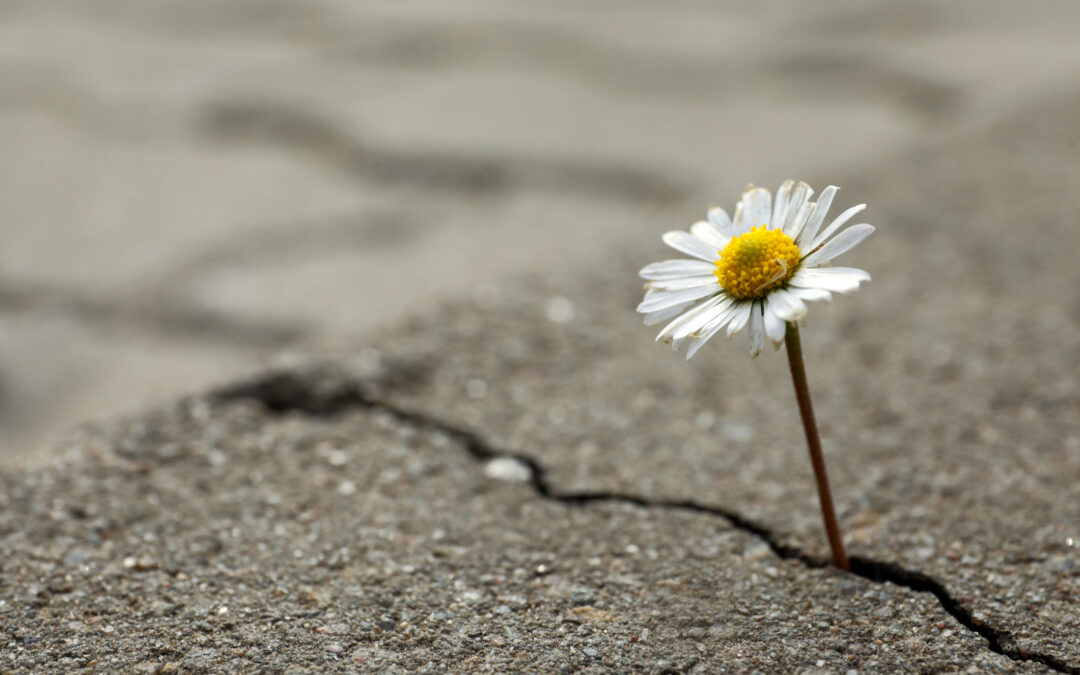What is resilience, really? Resilience is the ability to rise again when life knocks you down. It’s the inner strength that helps you face stress, setbacks, or loss — not by pushing everything away, but by gradually finding your way back to yourself.
It’s not a straight line. Resilience moves. It’s a process of falling and getting back up, of losing and rediscovering. Of allowing yourself to feel what’s there, and then — in your own way, in your own time — making space for life again.
For humans, resilience is never just mental. It touches your thoughts, your emotions, your body, and your relationships. You draw from whatever resources you have: psychological strength, social support, cultural values, bodily signals.
And that’s where the hope lies: resilience can be nurtured, deepened, and rebuilt — even when it feels far away.
In medical coaching, resilience takes center stage. Not as a goal in itself, but as something that helps you carry what feels heavy. That allows you to withstand what must be endured — with more space, more agency, and more gentleness toward yourself.
Whether you’re living with a medical diagnosis, long-term stress, or chronic symptoms: resilience isn’t about ‘being strong all the time’. It’s about staying responsive to what life is asking of you, without losing yourself in the process. It means being able to feel, choose, adjust. And little by little, to reconnect with what works for you — in your body, your life, your story.
In what follows, I’ll share a few different perspectives on resilience — always in relation to your current situation. Because resilience looks different when you’re ill, when you’re exhausted, or when you’re facing medical uncertainty. In medical coaching, this is our focus: How you, in the midst of everything going on, can stay true to yourself — to what you feel, need, and value — so that even in difficult times, you can remain fully yourself. So that you stay in charge of yourself in what’s happening, instead of being taken over by stress or fear.
Veerkracht begint vanbinnen
Hoe ga je om met wat het leven je brengt — als alles anders loopt dan je had gehoopt, of als je wereld ineens op z’n kop staat?
Emotional resilience isn’t a suit of armor. It’s not just pushing through. It’s more like moving with the waves — even when they’re high or catch you off guard. It’s the capacity to stay connected to your inner world. To feel what needs to be felt, and from there choose a direction.
In medical coaching, we explore resilience on different levels. One of them is the mental level: how you think, what you believe, where your focus lies. Your beliefs play a key role here.
What do you believe about yourself? Are you someone who must always perform? Someone who only feels worthy when things go well? Or can you see yourself as someone who is allowed to be both strong and vulnerable? Your self-image shapes how you respond to stress, illness, or adversity — and whether you allow yourself to ask for support, to take up space, or to slow down.
What do you believe is possible? Sometimes it’s not our circumstances that limit us, but the beliefs we’ve internalized. Do you believe that change is possible? That you can learn something new, even if it feels far off right now? Resilience also means: being open to possibilities you haven’t yet seen.
What do you believe about your illness? A medical diagnosis can radically shift how you see yourself and your future. Do you experience your illness as something that takes over everything — or as a part of your life, one that deserves space but doesn’t have to define you? How you view it makes a difference in how you live with it.
What patterns shape your thinking? Our thoughts often move faster than we realize. “I’m never doing enough.” “They probably think I’m difficult.” “I should be able to handle this on my own.” These are the quiet, automatic lines that steer how we feel and behave. Recognizing them is the first step. From there, you can create room for a different story.
How do you view the world around you? Is the world a place where you feel welcome — or do you always have to prove yourself? Your worldview colors how you connect, make choices, and deal with uncertainty. A softer, more generous lens can already shift something.
How do you relate to others? You don’t build resilience alone. Relationships matter. And that starts with communication. Can you express what you need? Set boundaries? Share what moves you? Clear and honest communication is vulnerable — and powerful. And it increases the chance that you’ll receive what you need.
How do you show up in the world? Are you allowed to take up space — without having to check a hundred times if it’s okay? Resilience also means daring to be seen as you are, not just when everything is in order.
And then there’s another layer: social resilience. That which connects you to others.
People who truly listen. Who don’t rush or silence you. Who help you catch your breath. Collaboration, asking for help, feeling held — these are not signs of weakness, but vital sources of strength. Sometimes that support is found within your circle. Other times it helps to have someone from outside walk alongside you: a coach, a therapist, someone who stands beside you without judgment.
Resilience isn’t something you either “have” or “don’t have.” It’s something you can nourish. With attention. With kindness. And with small, courageous steps.
Would you like to explore what might help you stand more firmly again? I’d be happy to think with you.

